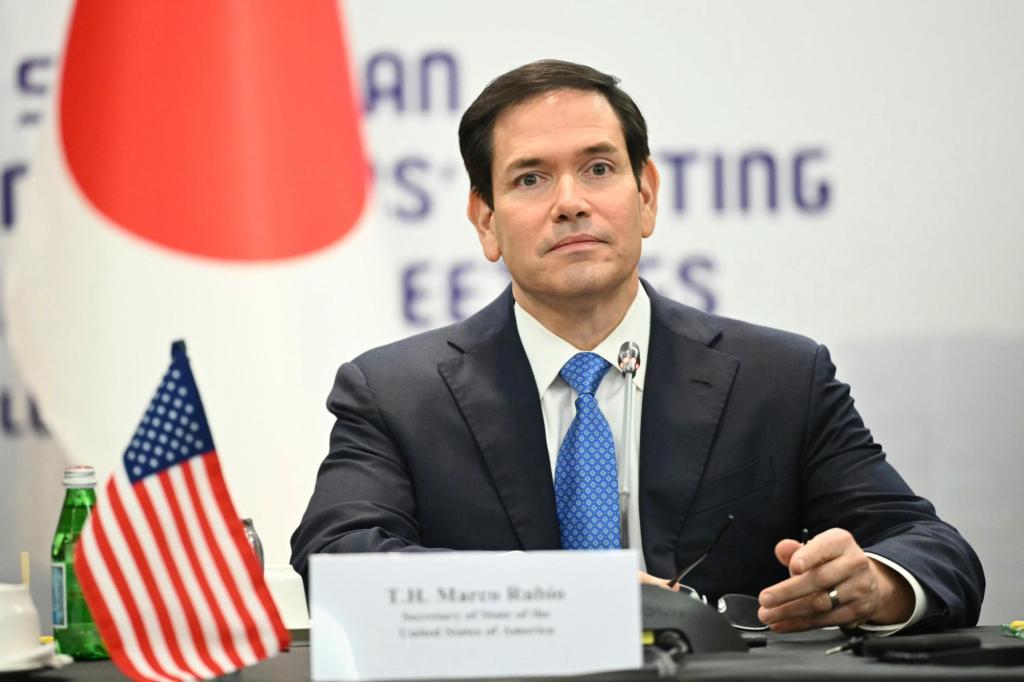Rubio, Wang Hold Constructive Talks at ASEAN Forum Amid U.S.-China Tensions
U.S. Secretary of State Marco Rubio and Chinese Foreign Minister Wang Yi met Friday on the sidelines of the ASEAN Regional Forum in Kuala Lumpur, Malaysia, marking their first face-to-face meeting amid growing geopolitical strains.
Both sides described the conversation as constructive and agreed to deepen diplomatic engagement while managing sharp disagreements.
 |
| Image Source: Broomfield Entreprise on X |
The meeting came as the U.S. and China continue to clash over trade policies, military activity in the Indo-Pacific, and China’s support for Russia’s war in Ukraine.
While trade concerns lingered in the background, Rubio emphasized that the talks primarily focused on security and diplomatic cooperation.
He confirmed that a possible meeting between U.S. President Donald Trump and Chinese President Xi Jinping was under discussion, though no date was announced.
China’s Foreign Ministry echoed the tone, describing the talks as “positive, pragmatic and constructive.” The ministry noted that both countries agreed to increase communication, pursue areas of cooperation, and work to prevent escalation on contentious issues.
Though neither side revealed detailed outcomes on core disputes—such as tariff policies or China’s military ties with Russia—the discussions appeared aimed at stabilizing the relationship as regional tensions rise.
Wang Yi emphasized the need for a new framework to manage the U.S.-China relationship and called for dialogue that reflects evolving global dynamics.
The meeting followed Rubio’s back-to-back diplomatic engagements in Kuala Lumpur, including a high-level conversation with Russian Foreign Minister Sergey Lavrov regarding prospects for a renewed peace process on Ukraine.
Rubio's Asia visit has taken place under the shadow of Trump’s tariff campaign, which has triggered concern among U.S. allies and trading partners.
During the ASEAN forum, Rubio reassured regional leaders that the U.S. remains committed to a cooperative Indo-Pacific. He signed a civil-nuclear cooperation agreement with Malaysia and engaged with Southeast Asian counterparts on maritime security and economic ties.
Meanwhile, Wang used his bilateral meetings to criticize Washington’s tariff strategy, accusing the U.S. of undermining global trade norms.
In separate conversations with ministers from Thailand and Cambodia, Wang called the tariffs disruptive to economic development and positioned China as a dependable economic partner.
Australia and the European Union also weighed in. Australian Foreign Minister Penny Wong called for a balanced Indo-Pacific free from coercion.
EU foreign policy chief Kaja Kallas warned that escalating trade wars risk isolating traditional partners and strengthening Beijing’s hand.
